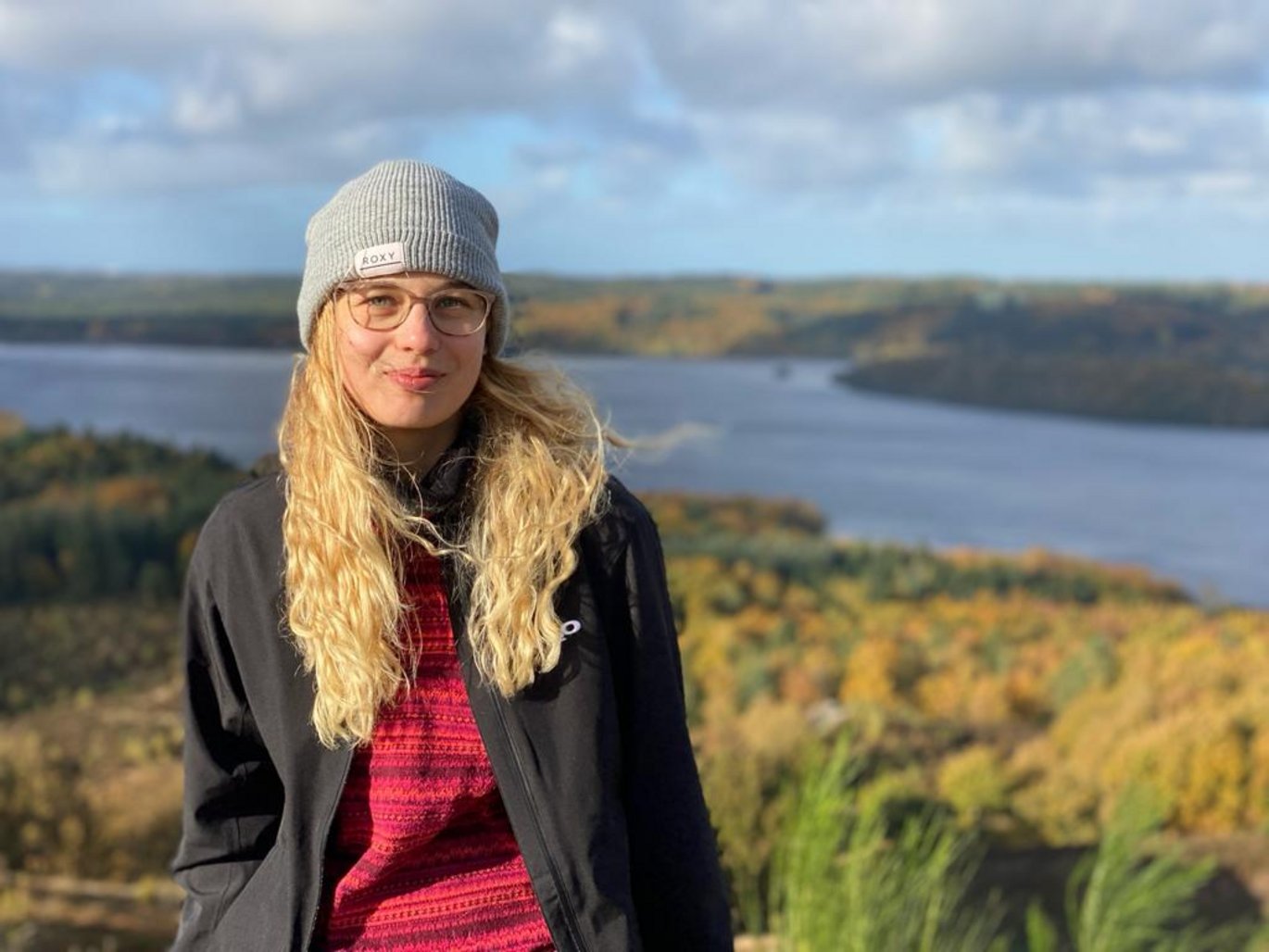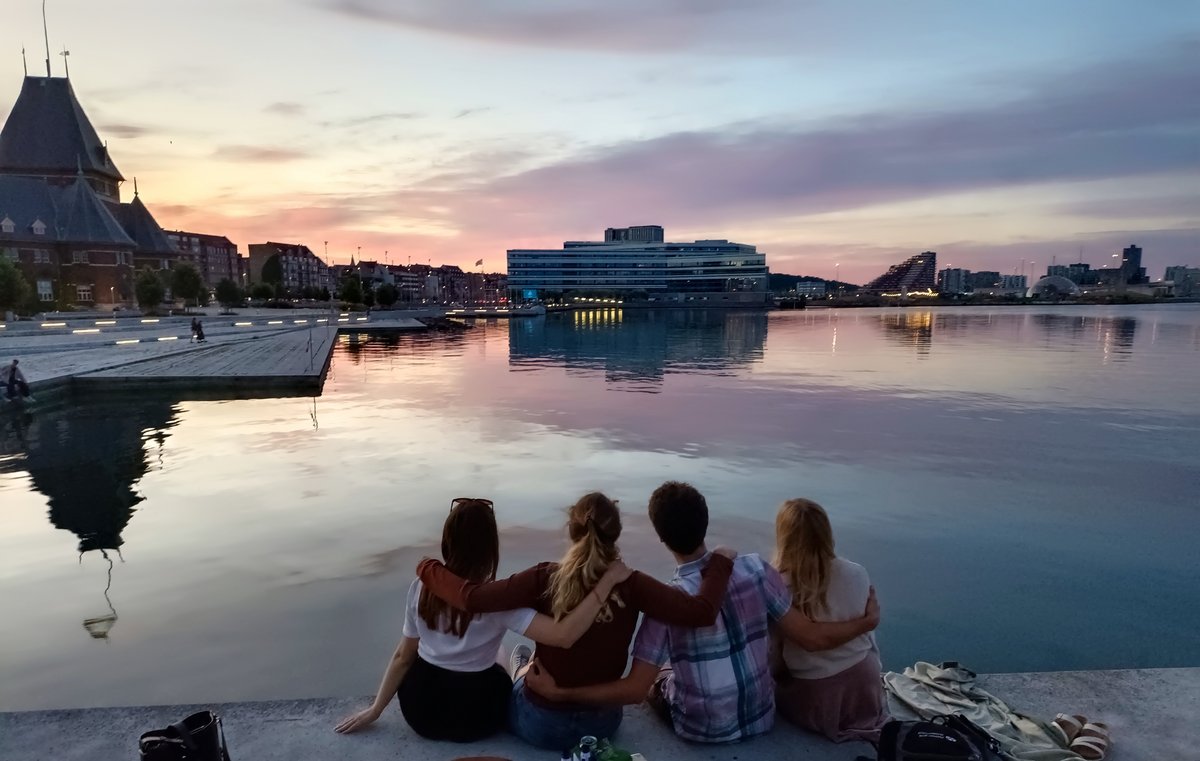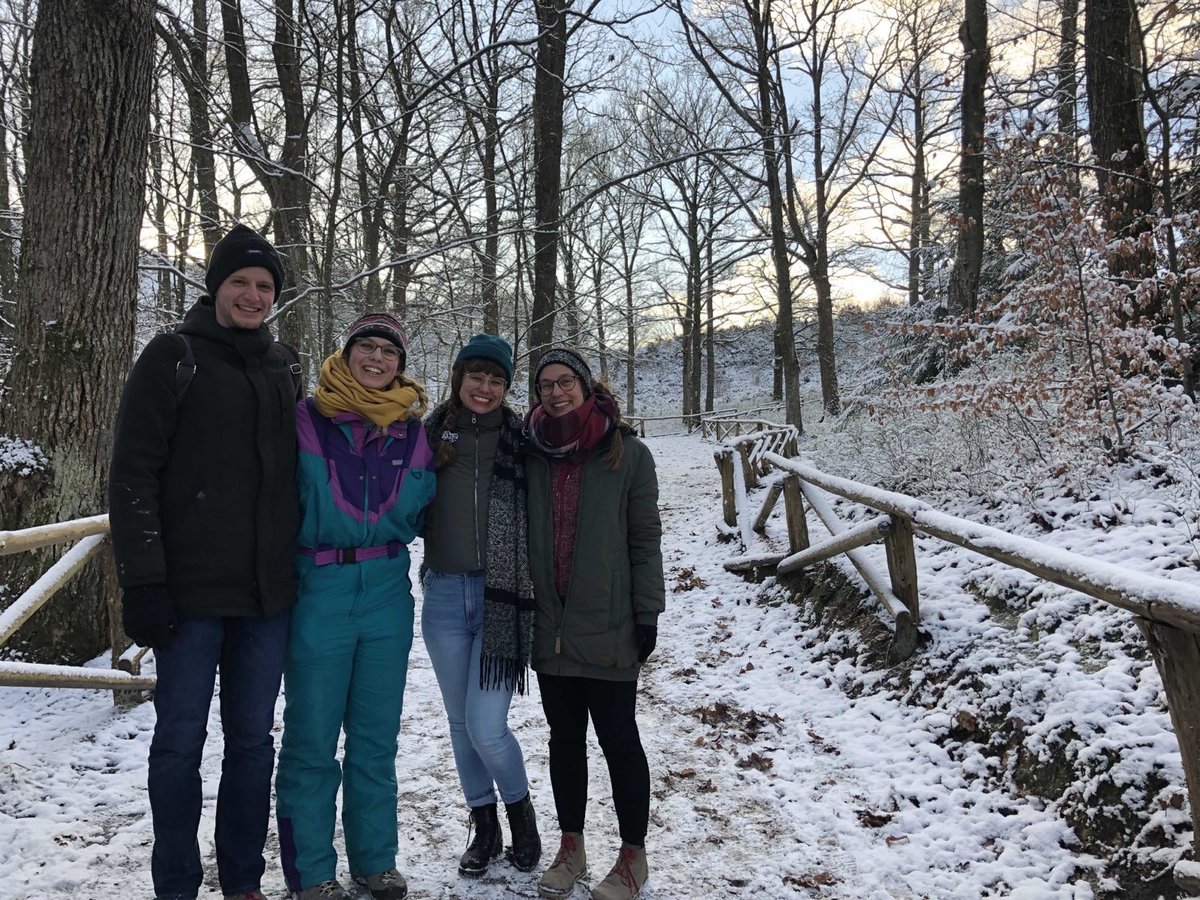Life as an exchange student at AU: A flat hierarchy, humanity – and strict regulations
Magdalena Mittermüller, an exchange student from Vienna, Austria learned much more than the curriculum during her year in Aarhus. She encountered a desirable work-life balance and respect and humanity between professors and students. And she also discovered that it takes a fair amount of vitamin D, plush sweaters and hot coffee to get through the freezing Danish winter.

“Magdalena, is that you? I have been looking for you everywhere!”
The walk to my first class in Aarhus was confusing. Everything on this campus looked the same and the area names didn’t make any sense to me at all. When I finally put down my bag in front of the classroom, a woman smiling with her arms wide open stormed out of the classroom in front of me. The woman was not my long-lost mother – she was in fact my professor. I had just missed the course introduction – with coffee and cake. But she reassured me that there were some refreshments leftover. Huh? Was this really the introduction to the Master's course at the university? I was left speechless and confused. This was so different from what I was used to.
Most of you won’t make it!
I come from a small town in Austria and studied history at the University of Vienna. On my first day of university back home, I was shouted at by various commuters on the way to class, because I was walking too slowly or because I was walking in the wrong lane (I didn’t even know there were wrong lanes to walk in …). When I finally found the lecture room, two men explained to us that we didn’t have to worry about finding places to sit when it came to the exam, because “most of you won’t make it that far anyway!”. I was nineteen and quite sure that I was one of those people who ‘wouldn’t make it that far.’ There was no cake.
Time for a change
Studying abroad was a logical decision for me, so to make an informed decision, I considered all my options on a pros and cons list. To my surprise, this research revealed the big, unknown (well, at least to me) city of Aarhus on the east coast of Jutland as a top destination. Equality was a perpetually outspoken goal on the university webpage, and, when I looked more closely at the department I’d be studying at, I noticed a better gender balance than I’d encountered at any point during my stay at my alma mater. Add to this the interdepartmental collaborations, a respect for work-life balance, a high quality of life among students, and a good student to teacher ratio: it’s easy to see how Aarhus became my first priority.
Just a delusion?
When I finally arrived at Aarhus university, I looked for something that would make the delusional bubble burst. My buddy introduced me to an incredibly beautiful library, which tended to close at 18:00 or some days even earlier – less than ideal for someone who has trouble thinking straight before ten in the morning … Was this the needle I had been looking for? Hardly. This was an acceptable price to pay for a good student experience. And you get a keycard to your department, so you can access the building almost all the time anyway.
Winter is coming …
Then winter came. In October. My winter clothes were inadequate, even though the temperatures were no lower than back home in Austria. It was cold everywhere. A cold that through its humidity creeps inside your bones and stays there until Den Permanente (a local beach club, ed.) opens for the summer break, allowing the sun to defrost your skeleton.
Still, our professors didn’t lecture us with sentences like: “everyone has to go through the same winter”. Rather, they encouraged us to take vitamin D, take care of ourselves and see “no shame in seeking help” as winter can be tough in the North.
They were not exaggerating. The winter was indeed very long and incredibly mentally exhausting – especially when we still had to perform academically. Yet whilst sympathy from your teachers doesn’t change the weather, it makes you feel human.
Humanity, work-life balance – and a no exceptions policy
At Aarhus University, humanity is not only present in the relationships between students and staff. It is also part of the architecture and surroundings, acknowledging that not everyone can focus in the same surroundings.
I noticed that the corridors were empty by 16:00. Neither did I encounter anyone in the buildings at the weekend – except during exam periods. If that makes you think that university life here must be easier, you are profoundly mistaken. Somehow, people just manage to study and work highly efficiently from the morning until the afternoon. As an international student, this make you miserable for a while: if a good work-life balance is possible, why isn’t it prioritized at your home university?
The humanity in the way academic critique is performed at Aarhus University stood out for me above all. The professors can differentiate between you as an individual and you as an aspiring academic. You will receive feedback, even if you don’t request it. Moreover, the teachers ask you to evaluate their teaching style. Your opinion matters. Halfway through the semester, your teacher will ask you to complete an anonymous online form about your study experience in the relevant course. In my experience, teachers are keen to adapt to requested changes and constructive critique. Even if this critique is harsh. They will not get angry or punish you with even harsher academic critique. This is especially breathtaking to someone from a university culture with a harsh tone and a strict hierarchy between student and professor, where you are happy if you even get a written response from your candidate counselor.
A no exceptions policy
As a student, you are allowed to make mistakes, but you are also presented with a demanding workload and challenging exams – and a no exceptions policy. The exam procedure will be explained to you to the point of redundancy, but, if you fail to submit on time, you fail the exam. Period. If you are late by a few seconds – tough luck! If you are unable to fulfill the requirements due to your health, you have to make this clear in advance – it’s difficult to get dispensation after the event. In conclusion, it’s fair to say that the teachers’ approach (at least those I encountered) is humane but that they all adhere to pre-agreed and strictly enforced regulations.
A human and desirable way of living
Over the past year, I’ve shared dinners, coffee and cake, life stories and travel anecdotes with my professors. I didn’t know that this sort of flat-hierarchy human conversation was possible with someone you look up to. Having encountered this, it made it even harder to go back to the harsh reality of my university back home.
I chose Aarhus because of the work-life balance, the teacher to student quota and its decent performance in international comparison – especially concerning equality. Though equity has not yet been reached and the workload – particularly during the dark and cold winter – was overwhelming at times, I learned much more at Aarhus University than the curriculum, the Danish way of life and culture, and the famous Danish birthday song. I got to see a way of performing academic research that is challenging yet aspirational and that does not consume every waking hour. A way of going through life that is human and desirable.
Copyedited by Sarah Jennings




